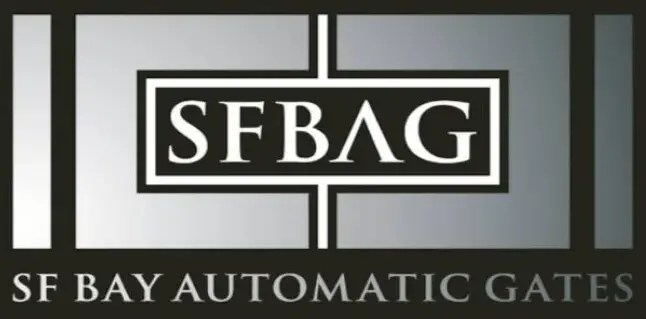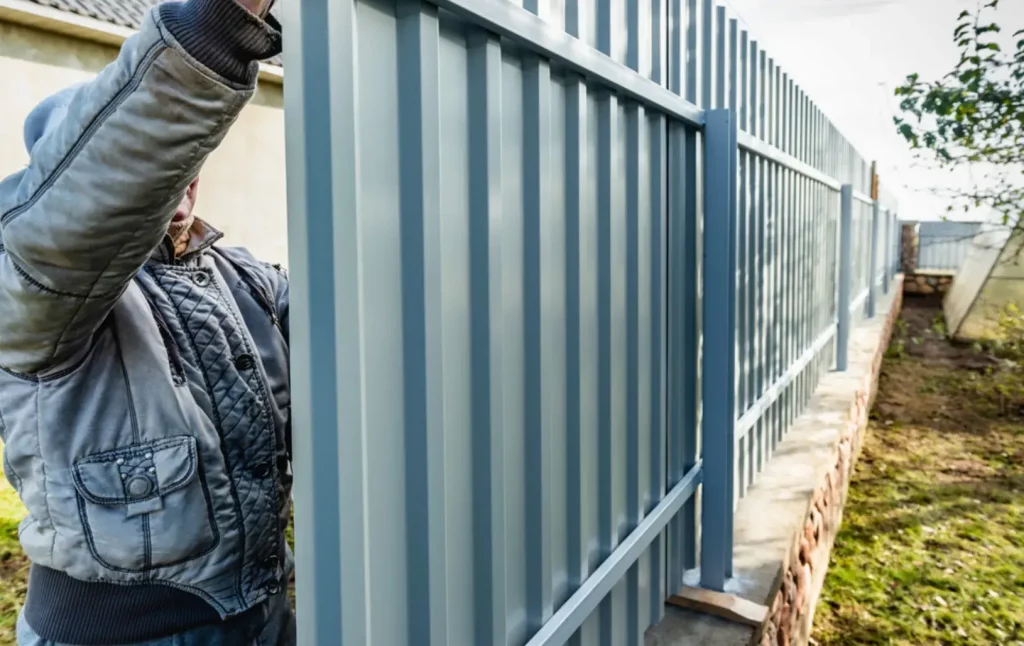Navigating the world of fence permits in San Jose can feel overwhelming, but understanding the process is essential before starting your fence project. Whether installing a new fence or replacing an existing one, knowing the local regulations helps avoid costly mistakes and potential legal issues. Working with an experienced fence contractor who specializes in fence installation San Jose can simplify this process substantially, as they’re familiar with local requirements and can guide you through each step.
The permitting process exists for good reasons – it ensures safety standards, maintains neighborhood aesthetics, and prevents property disputes. This comprehensive guide walks through everything San Jose homeowners need to know about obtaining the proper permits for fence installation, helping you achieve full compliance while creating the boundary you desire for your property. SF Bay Automatic Gates has extensive experience with San Jose’s permitting requirements and understands the nuances that make the difference between a smooth approval process and costly delays.
Understanding San Jose’s Fence Permit Requirements
San Jose’s building code has specific regulations governing fence construction, and these requirements can vary depending on your property’s location and zoning designation. Generally, residential fencing services in San Jose require permits when they exceed certain height thresholds or when special conditions apply. Understanding these requirements early prevents expensive mistakes and ensures your project meets all necessary standards.
Fences in front yards typically face stricter regulations than those in side or rear yards. For example, front yard fences in most residential zones cannot exceed 3 feet in height without special approval, while side and rear yard fences can often be built up to 7 feet tall. However, these standards may change if your property is on a corner lot, in a historical district, or subject to specific homeowners association (HOA) rules.
A qualified fence contractor will typically begin by conducting a property assessment to determine the exact requirements for your specific location. They’ll consider factors such as property zoning classification, setback requirements from property lines, corner visibility requirements for traffic safety, historical district designations and special overlay zones, easements and utility access requirements, and neighborhood-specific development standards.
Understanding these factors early in the planning process helps prevent surprises later. Many homeowners discover that working with an experienced wood fence contractor saves time and frustration, as these professionals regularly navigate San Jose’s permitting process and stay updated on code changes. SF Bay Automatic Gates maintains current knowledge of all local regulations and can assess your property’s specific requirements during the initial consultation.
The Step-by-Step Permitting Process
Obtaining a fence permit in San Jose follows a structured process. Breaking it down into manageable steps makes the task less daunting and ensures nothing gets overlooked. Here’s a detailed roadmap to guide you through the permitting journey for your fence installation San Jose project.
Research local regulations by visiting San Jose’s Planning, Building and Code Enforcement Department website or contacting them directly to understand the specific requirements for your zone. Property line verification comes next, confirming your property boundaries through existing surveys or by hiring a surveyor if needed. A professional fence contractor often has resources to help with this critical step, ensuring accurate boundary identification before construction begins.
Design compliance checking ensures your fence design meets all height, material, and setback requirements. Consider visibility at corners and driveways for safety compliance, particularly important for residential fencing services that must balance privacy with safety requirements. SF Bay Automatic Gates specializes in creating designs that meet all regulatory requirements while maximizing your property’s functionality and aesthetic appeal.
Permit application preparation involves gathering required documentation, which typically includes a site plan showing property lines and fence location, fence design specifications including height, materials, and post details, structural calculations if required for taller fences, and the completed permit application form. Application submission follows, either online through the city portal or in person at the Permit Center.
Fee payment covers applicable permit fees, which vary based on the project scope and value. The review process typically takes 2-4 weeks for standard fence permits, during which city officials evaluate your application for compliance with all relevant codes and regulations.
Special Considerations for San Jose Properties
Several factors unique to San Jose may affect your fence permitting process, requiring specialized knowledge that an experienced fence contractor brings to your project. Historical districts present unique challenges, as properties in areas like Naglee Park, Hensley Historic District, or the Reed Historic District may require additional design review to ensure your fence complements the historical character of the neighborhood.
Environmental concerns affect properties near creeks or within riparian corridors, which may face additional restrictions due to environmental protection regulations. The same applies to areas with protected trees or specific wildlife habitats. A knowledgeable fence repair San Jose specialist understands these environmental considerations and can design solutions that meet both regulatory requirements and your property’s specific needs.
Earthquake considerations play a crucial role in San Jose’s seismically active region, meaning that taller fences or those built on slopes may require engineering calculations to ensure they can withstand seismic activity. Security fencing experts understand these structural requirements and can design systems that provide both protection and seismic compliance.
Drought-friendly landscaping ordinances may affect your fence project if it includes associated landscaping, as San Jose has water conservation ordinances that could impact your plans. SF Bay Automatic Gates stays current with all environmental regulations and can help you navigate these requirements effectively.
Common Fence Permit Mistakes to Avoid
Even with careful planning, homeowners often encounter pitfalls during the fence permitting process. Being aware of these common mistakes can help you avoid delays and additional costs that could derail your fence installation San Jose project.
Building without a permit represents the most serious mistake homeowners make. Some assume that fence projects don’t require permits or that requirements won’t be enforced. This misconception can lead to stop-work orders, fines, and the potential requirement to remove non-compliant fences. Working with a vinyl fence builder who understands permitting requirements eliminates this risk entirely.
Incorrect property line assumptions create costly problems when homeowners build without proper verification. You might inadvertently build on a neighbor’s property or in a utility easement, leading to expensive disputes and potential fence removal. Professional residential fencing services always verify property boundaries before beginning construction.
Overlooking HOA approvals affects many neighborhoods in San Jose that have Homeowners Associations with their own approval processes in addition to city permits. Skipping this step can result in HOA violations and required modifications that add significant costs to your project.
Failing to consider utilities creates problems when underground utilities limit post hole depths or fence locations. Always call 811 for utility marking before beginning construction. An experienced fence contractor coordinates with utility companies to ensure safe and compliant installation.
Selecting the Right Fence Contractor for Your San Jose Project
Choosing a qualified fence contractor represents perhaps the most crucial decision in your fencing project. The right professional brings permitting expertise, local code knowledge, and construction skill to your project. Custom fence design specialists understand how to balance aesthetic preferences with regulatory requirements, creating solutions that meet both your vision and legal obligations.
Licensing and insurance verification ensures that any fence contractor you consider holds a valid California contractor’s license and carries appropriate insurance coverage, including liability and workers’ compensation. This protection safeguards your investment and provides recourse if problems arise during construction.
Permitting experience matters significantly when selecting contractors. Ask potential contractors about their familiarity with San Jose’s permitting process and how many permits they typically handle each year. SF Bay Automatic Gates handles dozens of permits annually, maintaining current relationships with city officials and staying updated on regulatory changes.
Local reputation provides insight into a contractor’s reliability and quality. Research online reviews, ask for references, and check with the Better Business Bureau to assess the contractor’s reputation in the San Jose community. An affordable fence contractor who compromises on quality or regulatory compliance ultimately costs more due to potential problems and corrections.
Portfolio and experience review helps evaluate whether a contractor can handle your specific project type. Review examples of similar fence projects they’ve completed in San Jose, particularly in neighborhoods similar to yours. Look for diversity in materials, styles, and complexity levels.
Timeline Expectations for Fence Permits in San Jose
Understanding the typical timeline for fence permits helps set realistic expectations for your project. While timelines can vary based on current department workloads and the complexity of your application, proper planning ensures smooth progress through each phase.
Research and preparation typically requires 1-2 weeks for property line verification, design planning, and documentation gathering. A local fencing company familiar with San Jose requirements can expedite this phase significantly through established processes and resource access.
Permit application review takes 2-4 weeks for standard residential fence permits, though this timeline can vary based on application complexity and current department workloads. Commercial permits or those requiring special approvals may take longer, making early submission crucial for time-sensitive projects.
Addressing corrections may require 1-2 weeks if the reviewing department requests changes or additional information. This phase may extend longer if substantial changes are required, emphasizing the importance of submitting complete, accurate applications initially.
Construction phase duration depends on fence length, complexity, and material availability, typically ranging from 1-5 days for residential projects. Weather conditions in San Jose can affect this timeline, particularly during winter months when rain may delay construction activities.
Final inspection scheduling occurs 1-3 days after completion, provided you schedule promptly after construction. This final step officially closes the permit and confirms compliance with all applicable codes and regulations.
A professional privacy fence installer can often expedite this process through familiarity with requirements and maintaining relationships with permitting officials. They’ll also help you plan for potential delays by building buffer time into your project schedule. SF Bay Automatic Gates maintains detailed project timelines and communicates regularly with clients about progress and any potential delays.
Cost considerations for fence permits in San Jose include basic permit fees typically calculated based on estimated project value, plan check fees for complex designs, special inspections when required, survey costs for property line verification, and contractor permitting services. While avoiding permitting costs might seem appealing, the potential consequences far outweigh the savings.
Long-term benefits of proper permitting include legal protection through documented compliance, property value preservation by demonstrating attention to regulatory requirements, insurance validity since some policies may not cover unpermitted structures, peace of mind knowing your fence meets all safety and legal requirements, and community harmony by following established processes.
The most experienced fence contractors emphasize these long-term benefits to their clients, helping them understand that proper permitting represents an investment in their property’s future rather than just an administrative hurdle. Working with SF Bay Automatic Gates ensures your fence project meets all regulatory requirements while delivering the functionality and aesthetic appeal you desire for your San Jose property.
Read more:
How to Navigate Property Line Disputes in San Jose, California: Fence Law Essentials

